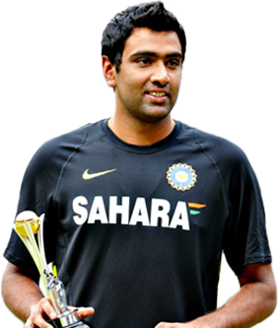
Veeru Murugappan
It took me well over a decade to even broach this subject. The reason for this was simply because I had kept it locked up somewhere in the back of my mind, not wanting to address it. The fact is that, through the mid-90's and early 2000's, I had my own battle with dyslexia. I never knew what the word meant or the implications it might or might not have.
A large part of that phase was spent attending extra classes after school. In addition to these classes, I spent a lot of time at the Madras Dyslexia Association (MDA). In my case, the extra lessons were more focused on spelling and sentence construction; and, to be honest, the teachers at MDA were extremely helpful. That said, I still didn't understand what was going on. At school, I soon began to realize that many of my classmates were way ahead of me in terms of completing their work and grasping various concepts across subjects.
I don't remember exactly when this happened but, one summer, I was kept back in the third or fourth grade. I'm not sure about the grade since it was a period that I've tried to shut away for so many years! I was kept back and ended up becoming the oldest kid in the class. I was told that the teachers felt I wasn't ready for the next level and so it would be better if I repeated the year. Even at that age, believe me, it was hard. However, I decided to grind it out and, as cliche as it sounds, 'ride out the storm'.
As the next few years went by, I began to get a slightly better understanding of dyslexia. I knew I had specific learning difficulties which were hampering my development on the educational front. Very often, I would omit letters and words from sentences, as well as having to deal with poor handwriting, inability to understand concepts, and other such problems. At the time, what was strange to me was the fact that it didn't affect me in other aspects of my life. I loved sport, news, theatre, public speaking, meeting new people etc., and all those elements were going great. The issue was only in the classroom.
AcceptanceWith any obstacle or challenge you face, it's important to identify and accept that there could be an issue there in the first place. The problem for me soon became a bit psychological. Although the MDA classes were helping, I was embarrassed to talk about it. In a public setting or event, I often heard things like, "Oh, Veeru is going for extra classes because he's a slow learner, I feel bad for him". As a result, I used to come up with various excuses when I actually had to attend these extra classes.
The first real eye-opener came during our 10th grade board exams. I was given 15 minutes extra time, but didn't tell any of my classmates about it. I had a dear friend from another school who was also given extra time for similar reasons. We both approached this in two completely different ways. My friend, Philli, was so open and honest about the issues he faced. He was very pleased with the fact that he got extra time for each exam and didn't mind talking about it at all. For my part, I decided to hide and keep it quiet. For most papers, I would try and finish along with the rest of my classmates and not even utilize the extra time that was given.
Although I knew it was only for my good, it really took a toll on me emotionally. During one of the exams, I did stay back and use up the full extra 15 minutes. Once it was over, I waited until everyone had left the building and only then stepped out to go home. Philli was the exact opposite. He was so relaxed and, each time he completed a paper, he went and spoke to all his friends. I spoke to him at length that summer after the exams were over and only then it occurred to me that dyslexia is nothing to be embarrassed about. Okay, we may not be great when it comes to spelling or understanding certain concepts, but we do have other skill sets so let's make the most of those.
Aamir Khan & The Movie, 'Taare Zameen Par'I'm sure many of you would have seen this film, but for those who still haven't, please do check it out when you can. In several ways, this movie changed my whole take on dyslexia for the better. In a nutshell, the film showcases the journey of an 8 year-old dyslexic child, Ishaan Awasthi. In the movie, Ishaan hates school and fails most of his subjects. He faces constant criticism both at home and at school. Though he's dyslexic, he has an amazing knack for art and that's something he excels in. His situation changes when a new art teacher (played by Aamir Khan) joins the faculty. He soon becomes Ishaan's tutor and a close bond is formed. The teacher makes Ishaan feel comfortable, welcome and uses various methods to help the child improve his reading and writing. As a result, Ishaan's grades get better and it also gives him a renewed self-confidence.
I was in college then and remember watching this movie with a number of friends. While my tendency had always been to hide and not address this issue, for the first time, I felt comfortable with it. During many sequences in the film, I burst into tears and, although my friends were wondering what on earth had happened, I wasn't embarrassed at all. I could see a lot of my own personal journey in Ishaan's character. I knew then that there was in fact light at the end of the tunnel and, let's face it, I'm really glad the tears came out that day!
Moving ForwardIn the case of Ishaan in the movie or my friend Philli in reality, they found their calling in fields like painting, art and design. As for me, I found my niche in sports television. I've been in the broadcasting industry since 2008 and I simply love it. It always helps when your passion and profession are one and the same and thankfully, I'm enjoying the ride to the fullest.
Unfortunately, there are still many myths about dyslexia. 'Dyslexics can be mentally retarded', 'there is no cure for dyslexia', 'people with dyslexia won't succeed in life', 'no one in my family has this issue, so my child can't be dyslexic' - the list goes on and on.
While we've come a long way in today's world with regard to helping people with learning difficulties, there are still so many misconceptions about it. I've had the opportunity to interact with many youngsters in the recent past and there is a belief among some that if you're dyslexic, you fall behind in the pecking order - be it at school, college or on the job. This is nothing but rubbish. Dyslexia is NOT a disease and it's most certainly not something that's prevalent because of a lack of intelligence.
My advice to the doubters or those who've faced issues would be to look at this as a different method or way of processing information and not as a hindrance. For a long time, I looked at it as an obstacle and that caused a lot of unnecessary issues. Yes, you may not be the best at reading, writing, forming sentences or learning certain things but you have many other talents at your disposal.
A vast majority of dyslexics have succeeded tremendously in life. The likes of Albert Einstein, Richard Branson, Tom Cruise, Muhammad Ali and Jennifer Aniston to name a few; and you and I both know how well these individuals have done!
Over the last few years, I have spent some time looking back at old e-mails, messages, scripts for our TV shows, etc. and I've seen that on a number of occasions even now, I've missed words in sentences. Fortunately, it's not as much as before but still it's important to take care and perhaps look through things twice or thrice over, rather than just once. I'm happy to say that my mindset is positive and not one of self-doubt or negativity like it was all those years ago. Let's face it, half the battle is won if you're happy with where you are, despite the challenges you've encountered.
To the parents and youngsters of today, don't let the mention of the word dyslexia pull you down. As one member of my camera crew said to me recently, "Dyslexia is not a difficulty or a disability my friend, it's a gift!” So dream big, follow your heart and amazing things can truly happen!
Chidren with Dyslexia learn differently - so we teach differently!
Help us make difference

A group of parents of children with dyslexia, educationists empathetic to the cause, and philanthropists founded MDA in 1992. Madras Dyslexia Association (MDA) is a non-profit service organization established to take a pragmatic approach to helping children with “Dyslexia”.